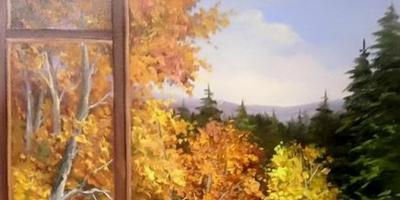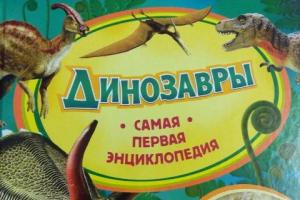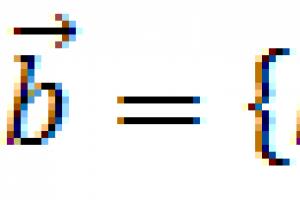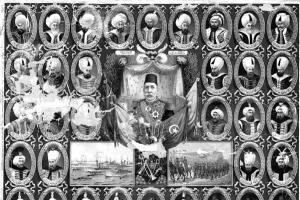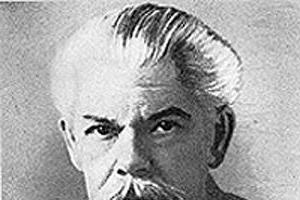Analysis of the poem "Autumn. Our whole poor garden is crumbling..."
A.K. Tolstoy is a famous poet and playwright of the 19th century. In the poem “Autumn. Our whole poor garden is crumbling,” the author very colorfully and subtly described autumn nature. He managed to notice the most important thing in the picture of autumn and express it in easy, understandable and simple words. To describe autumn, the author uses leaves noticed in the garden that have turned yellow, crumbled and “fly in the wind.” The poem is given a special color by “brushes of bright red withering rowan trees,” which further emphasize the brightness and beauty of the wonderful autumn. The described picture of autumn is both dull and colorful.
The second half of the verse speaks about the author’s inner experience, his state of heart and feelings. He describes his romantic relationship as easily and simply as he did when he spoke about autumn. The beauty of the described picture of autumn and his inner feelings that fill the heart are very similar - they are beautiful and pure. The poet has no words that could convey what he has inside and because of this he only “silently sheds tears.”
Looking into your eyes, I silently shed tears,
I don't know how to express how much I love you.
Vivid pictures of nature, described by the poet with love for his native land, amaze with their beauty and delight with their insight. A. K. Tolstoy’s poems are very light and melodic, many gained wide popularity among the people and became songs.
AUTUMN POEMS (September, October, November):
Read a selection of texts of poems about autumn, short and long, sad and beautiful autumn poems by famous classical poets (Russian and foreign)
Alexey Tolstoy
"Autumn! Our whole poor garden is crumbling..."
Autumn! Our whole poor garden is crumbling,
Yellowed leaves are flying in the wind;
They only show off in the distance, there at the bottom of the valleys,
Brushes of bright red withering rowan trees.
My heart is happy and sad,
Silently I warm and squeeze your little hands,
Looking into your eyes, I silently shed tears,
I don't know how to express how much I love you.
Maximilian Voloshin “Autumn... autumn... All of Paris...”
Autumn... autumn... All of Paris,
Outlines of gray roofs
Hidden in a smoky veil,
They blurred into the pearly distance.
In the thinning darkness of the gardens
Fire autumn spreads
Mother-of-pearl blue
Between bronze sheets.
Evening... Clouds... Scarlet light
Spilled into the purple distance:
Red in gray is the color
Overwhelming sadness.
It's sad at night. From the lights
The needles stretch out like rays.
From gardens and alleys
Smells like wet leaves.
Joseph Brodsky "Autumn drives me out of the park..."
Kicks me out of the park
Sucks up liquid winter
And he follows me on my heels,
Hit the ground
With a mangy leaf
And like Parka,
Entwines me through my arms and ports
Web of rain;
There's a spinning wheel hiding in the sky
This pathetic muslin
It thunders,
Like a running boy holding a stick in his hand
For cast iron colors.
Apollo, take it away
I have my own lyre, leave me a fence
And listen to me, lords
Favorably: harmony of strings
I replace - accept -
The inability of the rods to discord,
Transforming your do-re-mi
In a thunderous roulade,
How good Perun is.
Full of singing about love,
Sing about autumn, old throat!
Only she spread out her tent
Above you, stream
Icy ones
Drills furrowing the loam,
Sing them and bend them
The bald crown of their points;
Swoop in and poison
Your game, rabid pack!
I am your prey.
Eduard Bagritsky “Autumn (The timpani of the swans fell silent in the distance...)”
The timpani of the swans fell silent in the distance,
The cranes fell silent behind the marshy meadows,
Only hawks circle over the red haystacks,
Yes, autumn rustles in the coastal reeds.
Flexible hops curled on the broken fences,
And the apple tree fades, and the plum smells in the morning,
Beer is poured into barrels in cheerful zucchini,
And in the quiet darkness of the fields, trembling, a pipe sounds.
Above the pond the clouds are pearly and light,
In the west the lights are transparent and purple.
Hidden in the bushes, the bird-catching boys
Snares were set in the shade of the green pine trees.
From golden fields where blue smoke rises,
Girls pass by behind heavy carts,
Their hips sway under the thin canvases,
Their cheeks are tanned like golden honey.
Into autumn meadows, into unbridled space
Hunters hurry under the lace of fog.
And in the unsteady dampness it is piercing and strange
The trembling bark of the packs that found the beast is heard.
And drunk Autumn wanders from the dark thickets,
The dark bow is drawn with cold hands,
And he aims at Summer and dances over the meadows,
Throwing a yellow cloak over his dark shoulder.
And the late dawn on the altars of the forests
Burns dark backgammon and splashes with scarlet blood,
And to the summer turf, to the damp headboard
The cold sound of falling fruit flies.
Eduard Bagritsky “Autumn (I’ve been wandering along the roads all day...)”
I've been roaming the roads all day,
I go to villages and sit in taverns.
They throw it into my travel bag
Shabby penny, cottage cheese cake
Or a piece of salted ham.
I see how the cake maker is Winter
Sprinkles flour and sugar on the roads,
Hanging candy canes on Christmas trees,
And stains his face with flour,
And he secretly hums a song through his nose.
But now the busybody thinks,
Forgets to close the oven with a tight bolt,
And a warm spirit, out of nowhere,
Suddenly it blows and the candies melt,
And the loose flour will turn black.
And over the bumps, along the hillocks and paths
At first timidly, and then bolder,
Lifting my dress to my knees
And revealing my pink legs,
Jumping, splashing water from puddles,
The Spring girl is already hurrying towards us.
Then I climb the green hill,
I look from under my palm into the dry distance -
And I see how with a shambling gait,
Pushing a knitted cap over his forehead
And wiping my sweaty forehead with my hand,
Good-natured summer is creeping towards us.
It will come and sit by the road,
He will spread his legs in heavy shoes,
Light a pipe and fall asleep in the sun.
But a face bends over him too
Working women and gloomy Autumn
The drowsy one pushes Summer away.
And, awakened, it rises,
Yawns and curses quietly,
So that, God forbid, she doesn’t hear
Worker of sad cooing;
And slowly, through forests and valleys,
It wanders with a shambling gait
Into a space unknown to anyone. A Autumn
Hastens to the gardens, where the blessed juice
Filled with heavy fruits.
She works all day. Add to cart
Both apples and pears are piled up.
Beer is brewed from barley in villages.
Cheerful smoke flows from the dead carcasses,
And the hives in the sun smell like wax.
Hello to you, O blessed Autumn,
Nourisher of the orphaned and wretched,
Bent over a heavy basket,
From where they fall rhythmically to the ground
Either a red ear, or a ripe fruit.
And we tramps pick up greedily
Sweet gifts in your hems.
When will the suffering of the steppe end?
And over the carts creaking in the fields
The murmur of cranes will be heard, -
I, poor wanderer, raise my hands
And I say: go, go, dear,
Holy of saints. Yes your way will be
Fragrant and clear. Let it not be a burden
Heavy baskets of fruits for you.
And you go, led by the village
Flying cranes. You go and melt.
And only your cloak flutters in the wind.
Another moment - and around the corner
He also disappeared. Dust and leaves are swirling
They fly over the cold ground.
*
* *
Short poems about autumn: September, October, November: large and beautiful autumn poems - from the great classic poets from the collection of poems website
.............
"Autumn. Our whole poor garden is crumbling..." Alexei Tolstoy
Autumn. Our whole poor garden is crumbling,
Yellowed leaves are flying in the wind;
They only show off in the distance, there at the bottom of the valleys,
Brushes of bright red withering rowan trees.
My heart is happy and sad,
Silently I warm and squeeze your little hands,
Looking into your eyes, I silently shed tears,
I don't know how to express how much I love you.
Analysis of Tolstoy's poem “Autumn. Our whole poor garden is crumbling..."
The love experiences of the lyrical subject are included in the overall picture of harmonious nature. Memories of a sweetheart can give rise to the slowly gathering summer twilight. A female image, “meek,” “familiar and beloved,” appears before the mental gaze of the hero of the work “The philosophical concept of earthly love as a reflection of the heavenly “eternal beauty” is presented in the work “A number of personified natural images have secret knowledge about the true origin of high feelings: noisy forest, rapid river flow, flowers swaying in the wind.
The literary text, dated 1858, confirms the main tendencies of Tolstoy’s poetics. The composition, based on the technique of parallelism, combines a landscape sketch and a lyrical theme. They are reflected in the hero’s soul as a single experience of light sadness.
A picturesque autumn picture opens a small work. The leading role in the episode belongs to coloristic means. The flying foliage of the garden sets the main color tone of the landscape - yellow. It is diluted with small red accents: the “withering” rowan trees are located “in the distance,” “at the bottom of the valleys,” but their bright fruits are visible from afar.
The opening includes a laconic mention of the feelings of the lyrical “I” watching the leaves fall. It is expressed by the evaluative epithet “poor”. Further in the text, the hero explains the initial characterization: the impersonal construction “happy and sad” reflects the contradictory sensations generated by the spectacle of elegant withering.
The hero’s emotions are the central moment of the lyrical plot of “Autumn...” They precede the thematic change: the second part of the poem presents a love scene. Excited and tender, the hero warms his betrothed's hands, looking into her eyes with a moist gaze. An important attribute of the episode is silence, emphasized by the lexical anaphora “silently”. The real reasons for the silence are indicated in the final line. A trembling lover cannot express in words the strength of his own feelings, so his chosen one has access only to external signs of deep emotion: the touch of hands, eye contact, tears.
Slow rhythm, melodious six-foot trochaic line, simplicity of style and principles of selection of lexical means bring the poetic text closer to the best traditions of folk lyrical song.
(Illustration: Sona Adalyan)
Analysis of the poem "Autumn. Our whole poor garden is crumbling..."
A.K. Tolstoy is a famous poet and playwright of the 19th century. In the poem “Autumn. Our whole poor garden is crumbling,” the author very colorfully and subtly described autumn nature. He managed to notice the most important thing in the picture of autumn and express it in easy, understandable and simple words. To describe autumn, the author uses leaves noticed in the garden that have turned yellow, crumbled and “fly in the wind.” The poem is given a special color by “brushes of bright red withering rowan trees,” which further emphasize the brightness and beauty of the wonderful autumn. The described picture of autumn is both dull and colorful.
The second half of the verse speaks about the author’s inner experience, his state of heart and feelings. He describes his romantic relationship as easily and simply as he did when he spoke about autumn. The beauty of the described picture of autumn and his inner feelings that fill the heart are very similar - they are beautiful and pure. The poet has no words that could convey what he has inside and because of this he only “silently sheds tears.”
Looking into your eyes, I silently shed tears,
I don't know how to express how much I love you.
Vivid pictures of nature, described by the poet with love for his native land, amaze with their beauty and delight with their insight. A. K. Tolstoy’s poems are very light and melodic, many gained wide popularity among the people and became songs.
Alexey Konstantinovich Tolstoy
Autumn. Our whole poor garden is crumbling,
Yellowed leaves are flying in the wind;
They only show off in the distance, there at the bottom of the valleys,
Brushes of bright red withering rowan trees.
My heart is happy and sad,
Silently I warm and squeeze your little hands,
Looking into your eyes, I silently shed tears,
I don't know how to express how much I love you.

The love experiences of the lyrical subject are included in the overall picture of harmonious nature. Memories of a sweetheart can give rise to the slowly gathering summer twilight. A female image, “meek”, “familiar and beloved”, appears before the mental gaze of the hero of the work “It was getting dark, the hot day turned pale elusively...”. The philosophical concept of earthly love as a reflection of the heavenly “eternal beauty” is presented in the work “A tear trembles in your jealous gaze...”. A number of personified natural images have secret knowledge about the true origin of high feelings: a noisy forest, a rapid river stream, flowers swaying in the wind.
The literary text, dated 1858, confirms the main tendencies of Tolstoy’s poetics. The composition, based on the technique of parallelism, combines a landscape sketch and a lyrical theme. They are reflected in the hero’s soul as a single experience of light sadness.
A picturesque autumn picture opens a small work. The leading role in the episode belongs to coloristic means. The flying foliage of the garden sets the main color tone of the landscape - yellow. It is diluted with small red accents: “withering” rowan trees are located “in the distance,” “at the bottom of the valleys,” but their bright fruits are visible from afar.
The opening includes a laconic mention of the feelings of the lyrical “I” watching the leaves fall. It is expressed by the evaluative epithet “poor”. Further in the text, the hero explains the initial characterization: the impersonal construction “happy and sad” reflects the contradictory sensations generated by the spectacle of elegant withering.
The hero’s emotions are the central point of the lyrical plot of “Autumn...”. They precede a thematic change: the second part of the poem presents a love scene. Excited and tender, the hero warms his betrothed's hands, looking into her eyes with a moist gaze. An important attribute of the episode is silence, emphasized by the lexical anaphora “silently”. The real reasons for the silence are indicated in the final line. A trembling lover cannot express in words the strength of his own feelings, so his chosen one has access only to external signs of deep emotion: the touch of hands, eye contact, tears.
Slow rhythm, melodious six-foot trochaic line, simplicity of style and principles of selection of lexical means bring the poetic text closer to the best traditions of folk lyrical song.


